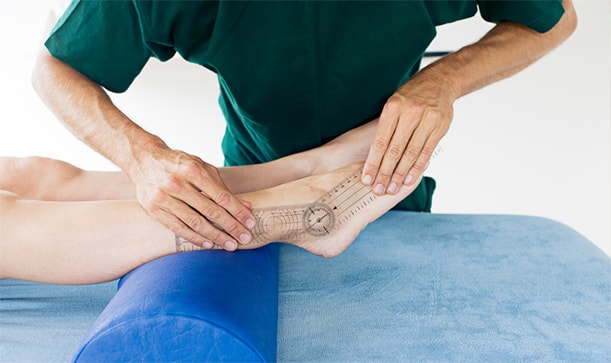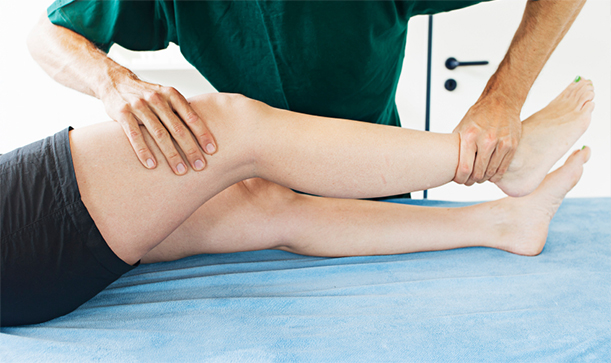CK Physiotherapy
AREAS COVERED
W7, W5, W13, Ealing, West London
57 Elthorne Avenue
Hanwell, W7 2JY
T: 020 8566 4113
M: 079 572 46185
E: info@ckphysio.co.uk
Location / Parking
We are situated in Hanwell, between Boston Manor Road and Northfields Avenue, south of the Uxbridge Road.57 Elthorne Avenue
Hanwell, W7 2JY
There are parking restrictions Mon - Fri 9-10am and 2-3pm. If you need a permit during this time please inform your therapist when you arrive. There are no parking restrictions at other times.
Opening Times
Please phone the number above during working hours to make an appointment. Our reception service will be happy to book your session.
London Underground / Bus Services
London Underground
10 min. walk from Boston Manor Tube Station.
15 min. walk from Northfields Tube Station.
Bus Service
E8, E3, E2, 207, 607, 83
Request Call Back
Our Blog
Preventing and Managing Winter Arthritis Flare-ups
By: admin Date: Feb 21st, 2023When the cold weather sets in, it can impact our bodies in a variety of different ways.
Our immune system can weaken in winter months, making our bodies more susceptible to cold viruses and flu.
Winter is also the time of year when people tend to suffer more from skin conditions and chapped lips, especially if they are trying to combat the chill of the weather by turning up their home central heating system.
For asthma sufferers, the winter months can also be uncomfortable, making breathing more difficult and causing symptoms to worsen.
But one of the most common conditions that often worsens during the winter months is arthritis.
If you suffer from arthritis, working with a physiotherapist on a winter arthritis management plan can help symptoms become more manageable during the winter months.
What is arthritis?
Arthritis is a common condition that millions of people suffer from across the UK.
It causes inflammation in your joints, which can result in pain, stiffness, and a reduction in your range of motion.
There are three common types of arthritis:
1. Osteoarthritis
Osteoarthritis is the most common form of arthritis. It’s caused by general ‘wear and tear’ on your body and is most often found in people over the age of 40.
It occurs when the cartilage in one or more of your joints wears down over time.
Cartilage is important as it cushions your bones and helps encourage the smooth movement of your joints.
As your cartilage wears down, your tendons and ligaments need to work harder, which can lead to inflammation and swelling.
In more severe cases, your bones might rub together and alter the shape of your joint.
The common joints affected by osteoarthritis include your knees, hips, fingers, elbows and ankles.
2. Rheumatoid arthritis
Rheumatoid arthritis is an autoimmune condition, where your immune system attacks the healthy lining of your joints, causing inflammation and swelling.
It’s possible for the signs and symptoms of this condition to vary in severity over time. Patients may go into periods of remission before suffering flare-ups.
It’s common for rheumatoid arthritis to initially affect the smaller joints in your body, such as your fingers and toes. But the condition can quickly progress to other joints like your knees, elbows and hips.
If you’re diagnosed with rheumatoid arthritis, it’s important to get treatment early.
If left undiagnosed and untreated, the condition can alter the shape of your joints and cause permanent damage.
3. Gout
Gout is a form of arthritis that is caused by a build-up of uric acid in the body, which leads to urate crystals forming around your joints.
Symptoms include swelling, redness and pain around your joints.
Gout most commonly affects your big toe, but can also occur in your knees, elbows and fingers.
One of the most common causes of gout is lifestyle choices and diet. Excessive alcohol consumption and eating foods rich in purines (red meat, organ meat and seafood) can increase your risk of suffering from gout.
What are the signs and symptoms of arthritis?
Every patient is different, and the signs and symptoms of arthritis will depend on which variation of the condition you suffer from.
But broadly speaking, typical symptoms of arthritis include:
- Reduced mobility in your joints
- Swelling around the joint areas
- Aching and soreness in your joints
- Decreased strength and muscle loss
It’s easy to see how these symptoms can affect your day-to-day activities and quality of life and why winter arthritis management is important.
How does the cold winter weather affect arthritis?
Many people who suffer from arthritis find that their symptoms often get worse in the cold winter months.
This is why winter arthritis management is important.
A study of 2,658 patients byVersus Arthritis found that people experienced more discomfort from their condition on wet and windy days than they did when it was dry.
However, the scientific evidence to support a direct link between weather and arthritis symptoms is inconclusive, according to theArthritis Foundation.
It’s likely that the cold weather influences other factors in patients’ lives, which can cause flare-ups in their condition during the winter months and increase the need for winter arthritis management.
-
Decreased physical activity
Keeping joints active and mobile is important when you suffer from arthritis.
The cold weather and the shorter days can make it more challenging to remain active during the winter months.
This reduction in activity can result in increased stiffness and soreness in arthritic joints.
-
More sensitivity to pain
Our pain receptors become more sensitive at lower temperatures.
So, in the cold winter months, you’re likely to feel more pain from arthritic joints than you are in summer. Working with a physiotherapist on winter arthritis management can help to address this pain.
-
Lower mood
Colder weather, darker nights and a reduction in physical activity can lead to a lot of people having a lower mood during winter months.
An article by Harvard Medical School suggests that people suffering from anxiety and depression tend to experience more severe and long-lasting pain.
-
Lack of Vitamin D
Vitamin D helps our bones absorb calcium and also helps to fight inflammation.
Sunlight is our primary source of Vitamin D, and in the cold winter months, we tend to get less of it. So, this is another potential reason why people may face worsening arthritis symptoms in the winter.
How can a physiotherapist help with winter arthritis flare-ups?
If you find that your arthritis symptoms tend to flare up as the temperature drops, there are plenty of things that a physiotherapist can do to help with winter arthritis management.
At CK Physiotherapy, the first step in our process is an initial consultation which can be completed virtually from the comfort of your own home.
With our virtual service, you don’t even need to venture out during the cold winter months while we check your medical records, history of your condition, your current symptoms, and your range of motion.
After we’ve got all the details we need from your initial assessment, we’ll develop a personalised winter arthritis management plan that is tailored to your individual condition.
Every patient is unique, but a common treatment plan might include elements of:
-
Heat therapy
This can increase blood flow and relax your muscles and joints.
-
Stretching and strengthening exercises
Your physiotherapist might recommend stretches and exercises tailored to your specific condition to help stretch and strengthen the affected muscles and joints. This can help to reduce pain and inflammation and improve your range of motion.
-
Manual therapy
Your physiotherapist might also recommend manual therapy as part of your winter arthritis management. Massage and manipulation can help to reduce pain and improve blood flow around your affected joints.
If you’re really struggling with your arthritis symptoms over winter, it's important to seek advice from your GP.
They may be able to prescribe medication or direct you towards the most appropriate over-the-counter products to help with your winter arthritis management. One common recommendation is ibuprofen, which can help reduce both the pain and inflammation associated with arthritis.
Your GP might also advise the use of assistive devices such as canes, crutches or walkers that can help reduce stress on your joints and improve mobility as part of your winter arthritis management plan.
Another solution that may be recommended is the use of supportive braces that help support your joints and manage the discomfort of arthritis.
CK Physiotherapy: Providing support for winter arthritis management
At CK Physiotherapy, our team of licensed, chartered physiotherapists understand how painful and limiting arthritis can be, especially during the winter months.
We’ve got the knowledge and expertise to support you with a tailored winter arthritis management plan that allows you to retain your independence and freedom this winter.
Whether you suffer from osteoarthritis, rheumatoid arthritis, or gout - if your GP feels like physiotherapy is a suitable solution for your arthritis, our team of experts may be able to help.
Contact us today for an online consultation, where one of our therapists will connect with you to discuss your condition and medical history, arrange an initial assessment, and work with you to create a personalised winter arthritis management plan.
Don't let arthritis hold you back this winter. Get in touch with us now.





